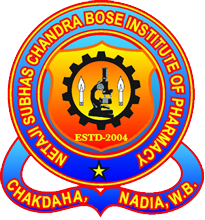 Medicinal chemists prepare and/or select appropriate compounds for biological evaluation that, if found to be active, could serve as LEAD COMPOUNDS. They then evaluate the STRUCTURE–ACTIVITY RELATIONSHIPS (SARs) of analogous compounds with regard to their in vitro and in vivo efficacy and safety. Today, medicinal chemists who are engaged in drug discovery are part of interdisciplinary teams, and must therefore understand not only the field of organic chemistry, but also a range of other disciplines to anticipate problems and interpret developments to help move the project forward.
Medicinal chemists prepare and/or select appropriate compounds for biological evaluation that, if found to be active, could serve as LEAD COMPOUNDS. They then evaluate the STRUCTURE–ACTIVITY RELATIONSHIPS (SARs) of analogous compounds with regard to their in vitro and in vivo efficacy and safety. Today, medicinal chemists who are engaged in drug discovery are part of interdisciplinary teams, and must therefore understand not only the field of organic chemistry, but also a range of other disciplines to anticipate problems and interpret developments to help move the project forward.
The modern medicinal chemist, although part of a team, has a particularly crucial role in the early phases of drug discovery. The chemist, trained to prepare new chemicals and with an acquired knowledge of the target disease and of competitive drug therapies, has an important part in framing the hypothesis for the new drug project, which then sets the objectives for the project. The chemist also helps to decide which existing chemicals to screen for a lead compound and which screening hits need to be re-synthesized for biological evaluation. Purification and proper characterization of the new chemicals is also the responsibility of the chemist. When an in vitro ‘HIT’ is identified, the chemist decides on what analogous compounds should be obtained or synthesized to explore the SARs for the structural family of compounds in an effort to maximize the desired activity. Developing in vivo activity for the hit compound in an appropriate animal model is also mainly the responsibility of the chemist. This can often be one of the most difficult steps to accomplish because several factors, such as absorbability, distribution in vivo, rate of metabolism and rate of excretion (ADME), all present hurdles for the chemist to solve in the design and preparation of new, analogous chemicals for testing. The goal at this stage is to maximize efficacy while minimizing side effects in an animal model.
For the medicinal chemist to address all the challenges outlined above, several skills are required. These include a thorough knowledge of modern organic chemistry and medicinal chemistry, an understanding of the biology that relates to the target disease, an understanding of the pharmacological tests used in the project and sufficient knowledge of the factors that influence ADME characteristics of chemicals in vivo. Furthermore, they should also have an understanding of clinical medicine that pertains to the target disease; knowledge of the regulatory requirements for related drugs; a current knowledge of competitive therapies, both in the market and under development by competitors; a thorough knowledge of the literature that is relevant to the target disease; familiarity with the many newer technologies available to facilitate drug discovery; and an entrepreneurial attitude in behaving as an innovator and inventor. Finally — and of crucial importance to the timely success of the project — the chemist must show superior interpersonal skills throughout the life of the project to interact effectively with colleagues from other disciplines to achieve project goals.

VERY INTERESTING TOPIC AND AS WELL AS IMPORTANT ALSO. AFTER READING THIS ANYONE WILL GET INTEREST ON MED.CHEM. ALSO.